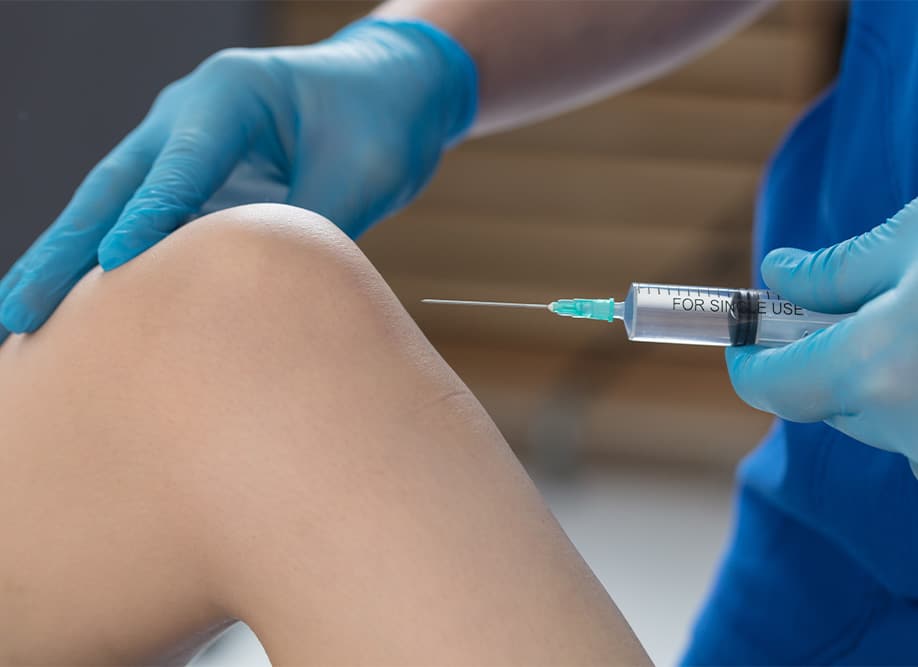Beyond Rest: Exploring Long-Lasting Relief with Knee Injections
Knee pain is a common complaint, affecting millions of people worldwide. It can significantly impact your daily activities, from exercise and hobbies to simply walking around. While rest is often recommended as a first step, it’s not always enough for long-term relief. Fortunately, advances in orthopedics have brought about innovative solutions like knee injections, offering targeted and effective pain management options.
This article delves into the world of knee injections, exploring the different types available, their benefits, and how they can help you regain control over your life.
Beyond Rest: Understanding Knee Pain and Treatment Options
Knee pain can arise from various factors, including:
- Injury: Trauma, such as a torn ligament or meniscus tear, can cause significant pain and inflammation.
- Arthritis: Osteoarthritis, the wear-and-tear of cartilage, and rheumatoid arthritis, an autoimmune disease, are common culprits.
- Overuse: Repetitive stress from activities like running or sports can lead to pain and inflammation.
- Bursitis: Inflammation of the fluid-filled sacs cushioning your joints can cause pain and tenderness.
- Meniscus tears: These tears in the cartilage can cause pain, clicking, and swelling.
Traditional treatment strategies often involve rest, ice, compression, and pain medications like nonsteroidal anti-inflammatory drugs (NSAIDs). Physical therapy can also play a crucial role in strengthening muscles and improving joint mobility. However, these methods may not always provide long-lasting relief, especially for chronic pain.
Exploring Common Knee Injections for Long-Term Relief
Knee injections offer a minimally invasive approach to delivering medication directly to the source of pain. Here are some of the most common types:
- Cortisone Injections: These injections contain corticosteroids, powerful anti-inflammatory medications that can rapidly reduce inflammation and pain. They are most effective for pain caused by inflammation, such as bursitis and arthritis flare-ups. The effects of cortisone injections typically last for several weeks to months, offering temporary yet significant relief.
- Hyaluronic Acid Injections: Hyaluronic acid is a naturally occurring substance found in the synovial fluid that lubricates and cushions your joints. Hyaluronic acid injections aim to replace or supplement the natural hyaluronic acid in your knee joint, improving lubrication and reducing pain caused by friction. These injections work best for mild to moderate osteoarthritis pain and can provide relief for several months.
- Platelet-Rich Plasma (PRP) Therapy: This innovative approach utilizes your own blood to promote healing. Platelets, rich in growth factors, are extracted from a blood sample and concentrated before being injected back into the injured area. PRP therapy aims to stimulate tissue regeneration and healing, potentially reducing pain and improving joint function. While research on PRP therapy for knee pain is ongoing, it shows promise for certain types of injuries and chronic pain.
Finding the Right Injection for Your Knee Pain
The appropriate injection for you depends on the specific cause and type of your knee pain. Here are some factors to consider:
- Diagnosis: A thorough evaluation by an orthopedic specialist is crucial to determine the source of your pain and recommend the most suitable injection type.
- Severity of pain: Cortisone injections can be helpful for acute pain flare-ups, while hyaluronic acid or PRP therapy might be more suitable for chronic pain.
- Individual needs and preferences: Some patients may prefer a faster-acting option like cortisone injections, while others might be interested in a more regenerative approach like PRP therapy.
Discussing your pain history, activity level, and expectations with your doctor will help them determine the best injection option for your specific situation.
Benefits of Knee Injections Compared to Traditional Treatments
Knee injections offer several advantages over traditional pain management approaches:
- Targeted Treatment: Medication is delivered directly to the source of pain, providing localized relief.
- Minimally Invasive: Compared to surgery, injections are less invasive, involving minimal downtime and recovery.
- Faster Pain Relief: Cortisone injections can provide rapid pain relief, while other injections may offer longer-lasting benefits over time.
- Improved Function: By reducing pain and inflammation, injections can help improve your ability to participate in daily activities


